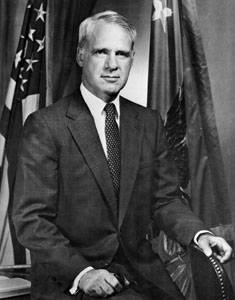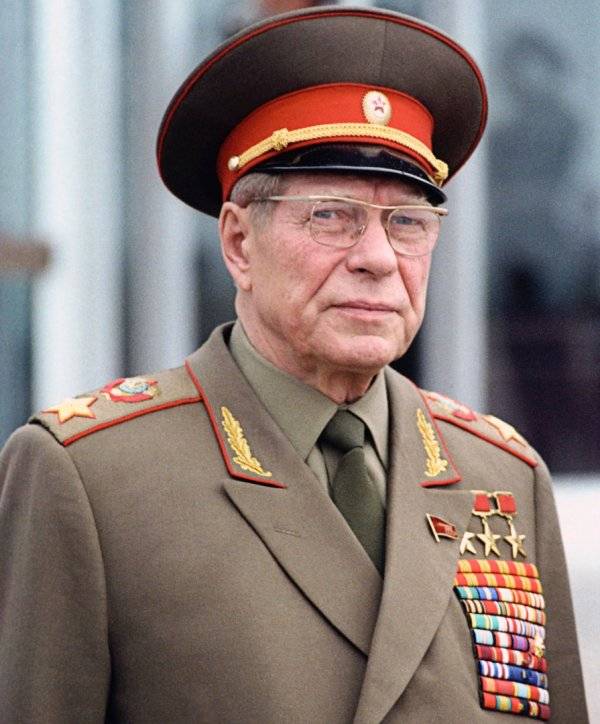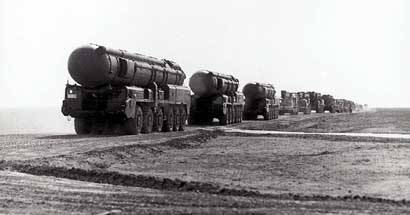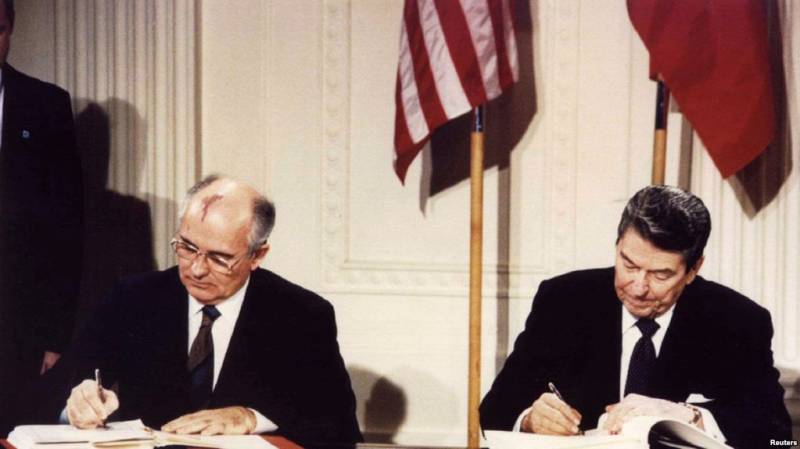Europe without missiles. Has our country secured a thirty-year-old treaty?
Missile weapons for both the United States and the USSR have always been a key tool in “deterring” a potential adversary. The nuclear race between the United States and the USSR, which began as early as the end of the 1940s, lasted almost forty years, while the countries constantly improved their missile weapons.
As we know, the United States initially focused on the concept of a general nuclear war, which implied massive nuclear strikes on the military and civilian infrastructure of the USSR. However, this concept was relevant until the Soviet Union created its own developed nuclear weapon. Now the territory of the United States also came under attack by Soviet missiles. The further development of nuclear weapons, the increase in their power threatened the whole future of mankind if they were used. Therefore, gradually, American strategists refused the concept of total nuclear war.
As technology developed, the concept of limited nuclear war became widespread, which did not involve a global war of mutual annihilation, but targeted strikes on the main military and civilian infrastructure — airfields, troop concentrations, and major transportation hubs. True, it was not very clear how the application of this strategy in practice would prevent the enemy from delivering a retaliatory strike against American territory. That is, the concept of limited nuclear war came into conflict with the principle of mutual guaranteed destruction.
 Even after the first nuclear strike, the adversary side could retain its nuclear potential and continue the war. Therefore, politicians and military leaders continued to discuss the prospects for modernizing the strategy of using nuclear weapons. At the beginning of the 1970's All the necessary conditions were created for this modernization - in the USA and then in the USSR systems of laser, infrared and television guidance appeared, allowing to control the accuracy of delivering nuclear strikes. Thanks to the introduction of these innovative systems, the concept of a decapitating strike was developed, which in August 1973 was officially proclaimed by the then American Secretary of Defense James Schlesinger. In accordance with this concept, medium- and short-range missiles came out in the first place, which made it possible to deliver ultra-precise strikes at specific targets in the territory of the enemy country, decapitating its leadership and preventing the launch of a nuclear strike.
Even after the first nuclear strike, the adversary side could retain its nuclear potential and continue the war. Therefore, politicians and military leaders continued to discuss the prospects for modernizing the strategy of using nuclear weapons. At the beginning of the 1970's All the necessary conditions were created for this modernization - in the USA and then in the USSR systems of laser, infrared and television guidance appeared, allowing to control the accuracy of delivering nuclear strikes. Thanks to the introduction of these innovative systems, the concept of a decapitating strike was developed, which in August 1973 was officially proclaimed by the then American Secretary of Defense James Schlesinger. In accordance with this concept, medium- and short-range missiles came out in the first place, which made it possible to deliver ultra-precise strikes at specific targets in the territory of the enemy country, decapitating its leadership and preventing the launch of a nuclear strike. In order to put this concept into practice, the American command began the modernization of the Forward Based System, a forward-based system located in Europe. In the 1974, the Ottawa Declaration was signed, and France, who had previously held a more neutral position than the United Kingdom, signed it. Naturally, such actions by Western countries could not but cause concern from the Soviet leadership, especially since France, as it turned out, also joined the Anglo-American defense system. When USSR Defense Minister Marshal Andrei Grechko passed away in 1976, he was replaced by Marshal of the Soviet Union Dmitry Fedorovich Ustinov as head of the USSR Defense Ministry.

He was not only a supporter of tough positions with respect to the United States, but also focused on a new concept of defense, in which the main role was not meant for armored forces as before, but for tactical and operational-tactical nuclear weapons. In this connection, almost immediately after the appointment of Ustinov, the Soviet Union began to modify its nuclear strategy. The theory of strengthening the European strategic direction was developed, in accordance with which the P-12 and P-14 began to be replaced with the latest medium-range missiles RSD-10 "Pioneer". The actions of the USSR seriously alarmed the European political elites, first of all - the leadership of Germany.
Since American troops, including missiles, were stationed in West Germany, Bonn feared that in the event of an armed conflict, the United States would turn the country’s territory into a battlefield. Soviet missiles will "beat" on American missiles and bases in Europe, that is - on the territory of the Federal Republic of Germany. German Chancellor Helmut Schmidt was convinced that it was necessary to achieve security and detente in Europe. However, Washington assured that the security of Germany can only be provided by a “bundle” of the defense systems of the USA and Western Europe. The deployment of medium-range missiles in Western Europe was considered as one of the important components of this defense strategy.

Meanwhile, the USSR deployed about 300 Pioneer missiles, each of which was equipped with three individual guided warheads. This circumstance seriously changed the balance of forces at the European theater of operations, since to the total superiority of the USSR and the Warsaw Pact countries in conventional weapons (Tanks, artillery) was added and superiority in missile weapons. Thanks to the Pioneer missiles, the Soviet Union was able to completely destroy the entire military infrastructure of the NATO command in Europe during the first minutes of the beginning of the conflict, not only command posts, but also ports, which posed a particular danger - in this case, the United States could not land troops Europe. NATO’s response was to deploy 1983 Pershing 572 missiles in Europe in 2. In addition, the ruling circles of the United States and NATO countries were about to begin negotiations with the Soviet Union.
The United States and France feared that a neutral position could triumph in West Germany, especially since the representatives of the West German political elite hoped for a quick unification of the country and were very afraid of the impossibility of achieving this goal if 30-40-50 years passed. Some German politicians began to make speeches that the goal of unifying Germany and the German people is of far greater importance for the country than military-political solidarity with the United States. Moscow sought to put pressure on Bonn so that the FRG would prevent the deployment of American Pershing on its territory. At the same time, Soviet leaders made it clear to their West German colleagues that the future of West Germany depends on Bonn’s behavior regarding the deployment of American missiles, not only in the event of a possible military conflict, but also in peaceful life. After all, the chances of normalizing relations between the FRG and the GDR were reduced, if both sides were bristling with missiles - the US in West Germany and the Soviet in East Germany.
Although the United States promised that they would provide a reliable defense of Western Europe against a possible Soviet attack, for West Germany the arguments of the Americans seemed insufficient. Bonn insisted on the need for prospective arms reductions. However, in 1980, in the United States, Ronald Reagan came to power - a Republican who spoke from tougher positions and was aggressive towards the Soviet Union. Already in 1981, Mr .. Reagan proposed to Brezhnev a so-called. "Zero option" - the United States refuses to deploy medium-range missiles in Europe, and the USSR removes Pioneer missiles. Brezhnev refused. The fact is that such an exchange was not just unequal (after all, the United States had not yet deployed its missiles in Europe), but did not take into account the presence of medium-range missiles in Britain and France, which were allies of the United States. Moscow offered its own version - the USSR withdraws the RSD-10 in exchange not only for the United States refusing to deploy Pershing, but also for the complete withdrawal of tactical nuclear weapons from Western Europe, including the elimination of medium-range missiles from Britain and France. The Reagan administration refused such an exchange, citing the fact that in conventional armaments and the size of the armed forces of the USSR and the Warsaw Pact countries surpass NATO in Western Europe.
In 1982, the USSR announced a temporary moratorium on the deployment of Pioneer missiles until such time as an agreement was signed. Moscow also proposed reducing the Pioneer RSD-10 to a number similar to the number of French and British medium-range missiles. But here Paris and London declared that their nuclear arsenals are not related to the United States and, accordingly, the issue of the deployment of American medium-range missiles in West Germany should be solved exclusively with Washington.
The situation changed after Yury Andropov came to power. In March, the 1983 Administration announced the transition to the SDI program, the Strategic Defense Initiative, which created a space-based anti-missile defense system that allowed the interception of Soviet ICBMs in the upper reaches of the flight path. In response, Andropov said that now the future of medium-range missiles will be discussed only along with negotiations on space weapons. The United States not only refused such negotiations, but also proceeded to deploying missiles in the UK, Italy and Belgium, and on November 22 of the year 1982 the German Bundestag voted to deploy American missiles in West Germany. In response, Yuri Andropov 24 on November 1983 of the year made a response statement in which he announced the withdrawal of the USSR from the Geneva talks and the deployment of the Oka tactical missiles in the territory of the Warsaw Pact countries - the GDR and Czechoslovakia. With the help of these missiles, the Soviet side could sweep the entire territory of West Germany, neutralizing the American missiles stationed there.
The situation continued to deteriorate, but in February 1984, Yuri Andropov passed away. By inertia, the tough position of the USSR was maintained for some time, but in 1985 year, after the election of Mikhail Gorbachev, General Secretary of the Central Committee of the CPSU, the situation changed. Already in the summer of the USSR 1985, the Soviet Union began to abandon the deployment of OTP-23 in Czechoslovakia and East Germany. In January, 1986, Mr. Gorbachev, proclaimed the beginning of the phased elimination of nuclear weapons throughout the world. In the autumn of 1986, the USSR proposed the launch of medium-range missiles outside the Urals in response to the Pershing redeployment to North America. The American side agreed with this proposal, but the Asian states intervened. Both Japan and the PRC feared that Soviet medium-range missiles would, if deployed in Siberia, be redirected to Japanese and Chinese targets.
The Soviet Union, however, was not going to give up on the idea of reciprocal arms reduction. In February, 1987, Moscow proposed the concept of a “double zero”. But in April, 1987, the United States put forward a new requirement - to reduce and operational-tactical missiles "Oka" (OTR-23). Although the Oka missiles were not suitable for defining medium-range and short-range missiles, the United States accused the USSR of trying to retain dangerous weapons and threatened that if the USSR did not start dismantling the Oka missiles, the United States would deploy upgraded missiles in Europe. Lance. In the leadership of the USSR there was no unity on the question of the future of the Oka missiles. The conservative part of the Soviet military-political elite was opposed to concessions to the Americans. In particular, Marshal of the Soviet Union Sergey Fedorovich Akhromeev, who at that time held the post of Chief of the General Staff of the Armed Forces of the USSR and First Deputy Minister of Defense of the USSR, spoke out categorically against dismantling the Oka. Nevertheless, the “party of peace”, in fact, the party of the weakening of the Soviet state, triumphed. In September, 1987, the next negotiations between the American and Soviet leaders took place in Washington.
On the Soviet side, the Minister of Foreign Affairs of the USSR, Eduard Shevardnadze, participated in the negotiations, whose role in the fate of the Soviet Union is well known to all and does not need additional explanations. The Soviet Union agreed with the American requirement to develop a unified classification of medium-range and short-range missiles and to include OTR-23 “Oka” operational-tactical missiles in the treaty that did not fall under the definition of medium-range and short-range missiles. In response, the United States promised to abandon the deployment of Lance-2 tactical missiles with neutron warheads in West Germany, as well as the elimination of Tomahawk ground-based missiles. Thus, the illusion of a mutually beneficial treaty was created, although, in fact, the Soviet Union seriously reduced its defensive capabilities.
December 8 The Washington 1987 meeting of the first persons took place - the President of the United States of America Ronald Reagan and the Secretary General of the Communist Party of the Soviet Union Mikhail Gorbachev. At this meeting, the Treaty on the Elimination of Intermediate-Range and Shorter-Range Missiles was signed, which entered into force on 1 on June 1988. Now, thirty years later, we see that the adoption of this document by no means secured our country from the risk of the use of short- and medium-range missiles by its opponents. Moreover, many states continue to acquire such missiles. In this regard, already in 2013, Vladimir Putin stressed that Russia could withdraw from the treaty.

Information